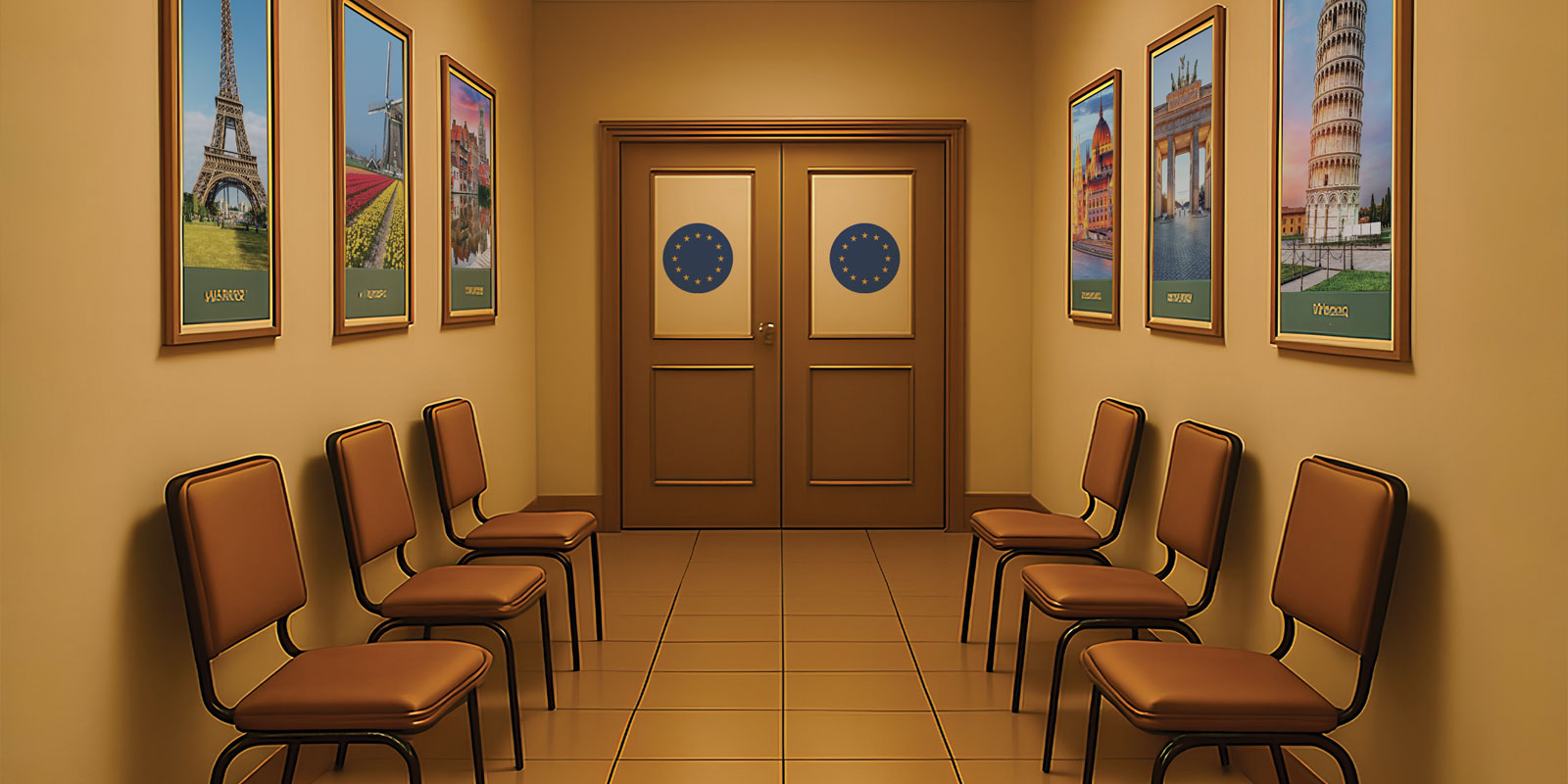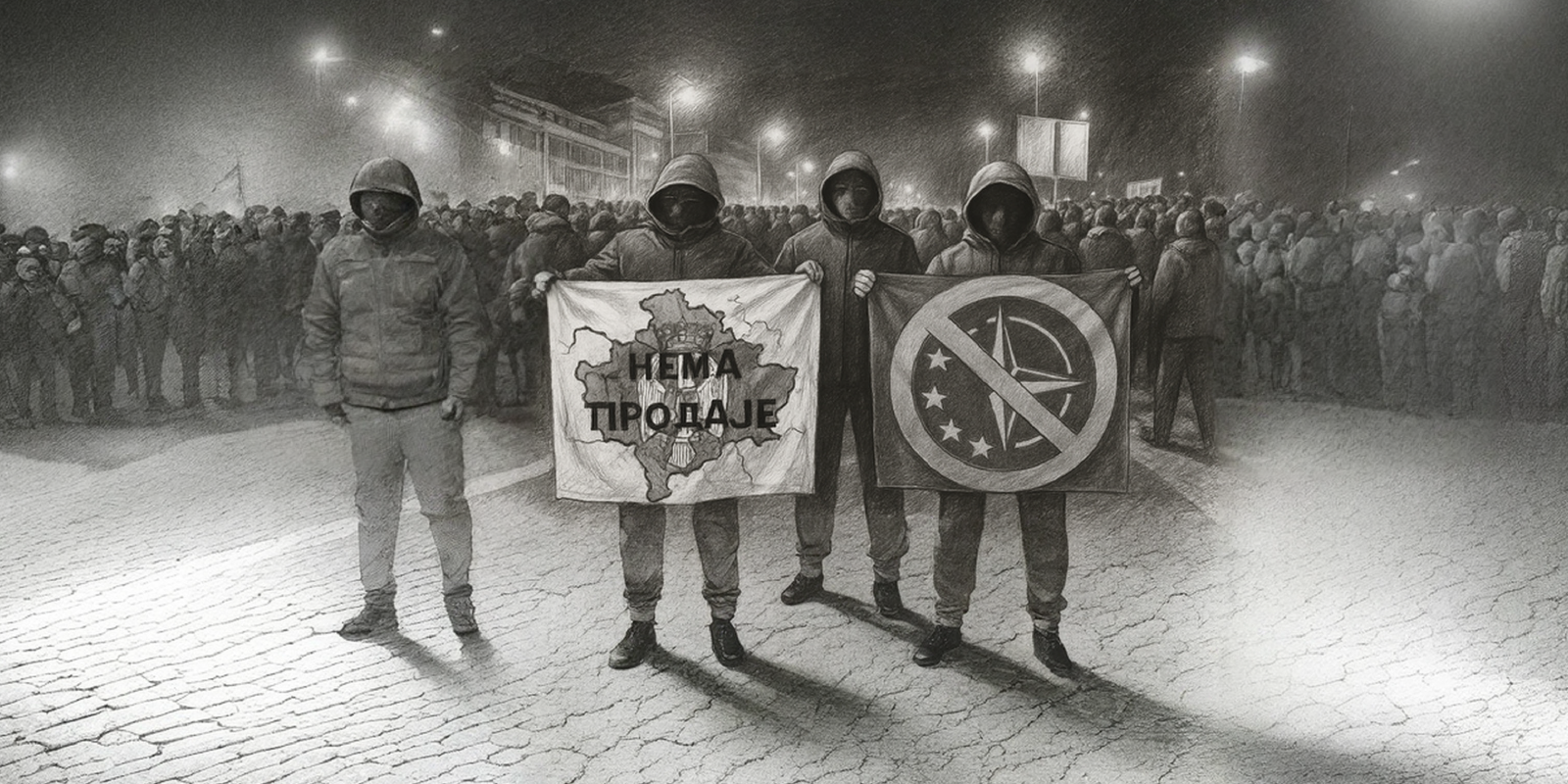PUBLICATION: Analysis
Another Opportunistic Early Election Called by Serbia’s Ruling Party
The elections in Serbia are the fourth early parliamentary election since the SNS came to power in 2012. None of them were triggered by a collapse of the ruling majority, but rather they were a strategic political move.
The December 2023 election in Serbia is the fourth early parliamentary election since the ruling Serbian Progressive Party (SNS) came to power in 2012. Previous snap elections were called in 2014, 2016 and 2022. None of them were triggered by a collapse of the ruling majority, and neither is the one taking place in December. Instead, going to the polls has always been a strategic decision by SNS, more specifically its currently informal leader, President of Serbia Aleksandar Vučić.
Some political scientists have described this phenomenon as “opportunistic early elections”, which can only be explained in terms of the interest of the ruling party, and not the country in general. This type of elections has become common in Serbia under the rule of SNS. In previous years, early elections in Serbia – such as the ones in 2003 and 2008 – were a result of a genuine breakdown of the parliamentary majority.
Constitution of Serbia allows the ruling party to call early elections with ease. According to the Article 109, the government is only required to send a “justified request” to the President of the Republic for him to be able dissolve the parliament. When the same party controls both offices, which has been the case for the entirety of the rule of SNS, there are virtually no institutional constraints for holding early elections, as the “justified request” of the government can contain practically any argument.
Throughout the years, many advantages of the opportunistic early elections for SNS have become apparent. Firstly, they allow the party to demonstrate its strength and discourage opposition and its voters, since it can choose the most favorable time for calling the election. This was the case, for example, in 2014, when SNS scored its first dominant victory of 48%.
By dissolving the parliament early, SNS is also able to hold national-level elections together with elections on local level. The resulting merger of the campaigns usually boosts the score of the ruling party in local elections, since the potentially poorer results of its local officials are overshadowed by the national issues. The prime example of this tactic was featured in 2016, when SNS called early parliamentary election to coincide with local and provincial elections in the country.
Another reason for which the ruling party utilizes the “tool” of early elections is the opportunity to postpone potentially unpopular decisions until the election campaign is over and the new government is formed. After the 2020 and the 2022 elections, SNS deliberately exhausted the constitutional deadlines of 120 days to form a government, despite the fact that it had clear majorities in the parliament. Thus, in 2022, Serbia did not have a government in the full capacity from February to October, which might have been used as an excuse for not imposing sanctions on Russia, when the pressures to do so was high.
The remaining unclear motivations for calling elections in 2023
Despite the obvious general benefits SNS has from snap elections, the December 2023 early election has been somewhat of a puzzle for analysts since it was called. While everybody agrees that it was yet another opportunistic early election, it has not been sufficiently clear which specific strategics goal it fulfills.
All three of the above-mentioned explanations have been heard in the public. Firstly, some analysts pointed out that, with the rising costs of living and the general saturation of the voters with SNS, the party decided to go for elections sooner rather than later, while it can still achieve dominant victory. These conclusions, however, have not been supported by hard evidence of the downward trend of party’s support. Even the tragic mass shooting in Serbia in May 2023, which triggered massive anti-violence protests, do not seem to have significantly affected the support for SNS.
The second explanation – that SNS needs early parliamentary election to boost its support in local elections – would have been convincing had the party called early elections in June 2024, when regular local elections in about 90% of municipalities were scheduled. Instead, SNS called elections for December and ordered its mayors in about half of municipalities to resign and trigger early local elections as well.
This division of local elections into two phases – the first in December 2023, together with parliamentary election, and the second one in June 2024 – is unprecedented and its strategic value for SNS is still difficult to estimate. Since the municipalities chosen for December 2023 are mostly the ones in which SNS is expected to perform strongly, one of the explanations may be that by achieving convincing victories in December, the party intents to further discourage opposition and deplete its resources ahead of elections in June.
Finally, the third explanation for early elections – postponement of unpopular decisions – can be seen in the context of Banjska attack in Kosovo on 24 September. Only a couple of days after the attack, Vučić announced early elections for December. Since the formation of the new government can theoretically be postponed to April or even May, with this decision he might have bought himself enough time to delay any serious concessions in the light of the Banjska attack and the previously accepted Brussels and Ohrid agreements.[1] In the meantime, elections for the European Parliament will take place, followed by the US presidential election, further widening Vučić’s maneuvering space.
All these explanations for the December 2023 early elections can be regarded as provisional. There is not enough proof to declare either of them, or any combination of them,accurate. The ruling party, meanwhile, has not been open about its decision to go for elections. The final interpretation, it seems, will have to wait until the period after the elections, when some circumstances, both external and internal, might become clearer.
What is the result SNS is hoping for?
The April 2022 parliamentary election was seen as a disappointment for SNS, since it secured “only” 43% of the votes. However, the pollsters, including Ipsos and Faktor plus, had predicted the ruling party to gainmore than 50% of the votes in their final pre-election publications. Compared to the expectations, therefore, SNS performed worse and it lost the overall majority in the parliament for the first time since 2014.
Since the pro-EU opposition failed to significantly increase its support in 2022, it has been widely assumed that the voters which the regime lost between 2020 and 2022 (more 300,000), went to the junior coalition partner Socialist Party of Serbia (SPS) and the right-wing opposition. Further indications that this interpretation is correct can be seen in the campaign, during which SNS has repeatedly attacked the right-wing opposition for their supposed readiness to cooperate with the ideologically distant pro-EU opposition after the elections. SPS has also been under fire by the tabloid newspapers close to SNS for alleged corruption and disloyalty.
The goal of SNS in these elections, therefore, seems to be to prevent further loss of its voters to SPS and the right-wing opposition, and to potentially reclaim some of the voters lost to them in the previous election cycle. At the party rally in December, Vučić said that the goal of the party is to win the overall majority in the parliament, which it lost in 2022.
The party would also want to keep power in Belgrade, where the pro-EU opposition, which is now united, has jointly scored only a couple of percentage points less than SNS in last year’s election. Good showing of SNS might also translate into a momentum ahead of the remaining local elections in June 2024, including in several cities that are vulnerable for the ruling party.
In achieving these goals, SNS will be helped by the unfair electoral playing field it has established over the years. Reports of the independent observer CRTA show that these elections feature all the problems that the previous ones did as well: media imbalance, merger of public office and party campaigning, abuse of public resources and dozens of allegations of pressure on voters. These problems have been noted by all recent reports of OSCE/ODIHR observer missions, but multiple attempts to improve electoral conditions, which included the mediation of the European Union, have not succeeded in bringing meaningful change.
Tags: Serbian elections
AUTHORS
SHARE
PDF PREVIEW
RELATED

Date: 22.10.2025.
Author: Jelena Pejić Nikić |
This policy paper examines Western Balkan stakeholders' perspectives on what is needed for meaningful enlargement and the EU reforms they consider essential for an effective expanded Union. Field research in spring and summer 2024 included 16 high-level interviews with representatives from all six countries of the region.

Date: 13.10.2025.
Author: Belgrade Centre for Security Policy
The subject of analysis is the content related to student and civic protests distributed on the Telegram channel “BUNT je stanje duha.”

Date: 04.08.2025.
Author: Vuk Vuksanović |
The analysis is based on the "Security Radar" public opinion survey conducted by the Friedrich Ebert Stiftung in selected European countries, including Serbia, and a comparison of public opinion findings for 2022 and 2025.



